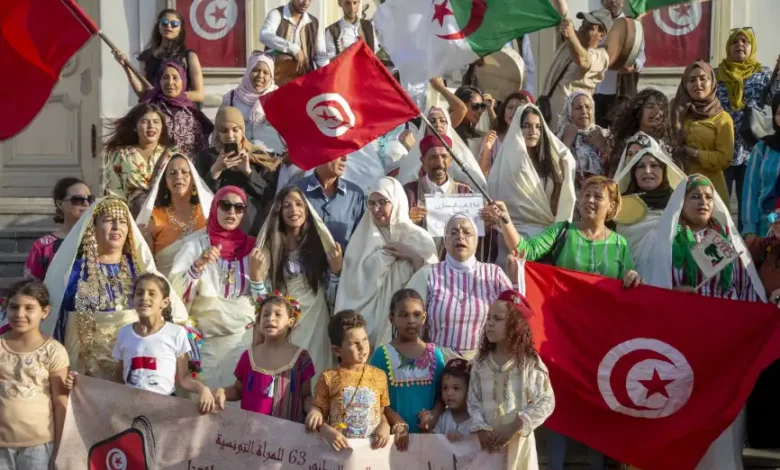Wissal Khlifi, Department of translation and Interpreting. 08-03-2024
The commemoration of International Women’s Day serves as a powerful reminder of the ongoing fight for gender equality and the recognition of women’s invaluable contributions to societies across the globe. Amidst this worldwide celebration, it is crucial to shine a spotlight on the extraordinary accomplishments Tunisian Women, whose unparalleled resilience and unwavering resolve have made an everlasting impact on the course of history.
Throughout the ages, Tunisian women have been instrumental in molding the fabric of their country’s culture, society, and politics. Their impact can be felt across a multitude of domains, including but not limited to politics, education, arts, and literature.
In the annals of history, Tunisian women have exhibited remarkable fortitude and guidance.
The remarkable contributions made by Tunisian women in the field of education cannot be disregarded.
One notable figure is Aziza Othmana, a prominent advocate for women’s education during the early 20th century. Othmana’s ruthless advocacy efforts paved the way for the establishment of the first modern schools for girls in Tunisia, through expanding educational opportunities.
The political arena in Tunisia has been greatly influenced by the contributions of Tunisian women, who have actively engaged in movements in favor of liberation, democracy, and human rights. Their exceptional leadership abilities and expertise in governance have proven invaluable, as they provide unique insights and perspectives that shape the nation’s path forward. Women such as Amira Yahyaoui, founder of the NGO Al Bawsala, have been at the forefront of efforts to promote transparency, accountability, and civic engagement, thus ensuring that the voices of Tunisian women are heard and respected in the corridors of power.
Tunisian women have excelled in the fields of literature, arts, and academia, leaving an indelible mark on the cultural landscape. Fatma Ben Sliman, for instance, renowned for her poetic prowess, defied societal norms to become one of Tunisia’s most celebrated poets, captivating audiences with her eloquent verses that spoke to the essence of womanhood and empowerment. Similarly, Leïla Sebbar, a prolific author and scholar, has contributed profoundly to the enrichment of Tunisian literature, offering poignant narratives that illuminate the complexities of identity, migration, and gender dynamics.
Dr. Habiba Bouhamed Chaabouni, on the other hand, a distinguished geneticist and recipient of numerous international awards, her groundbreaking research has contributed to advancements in medical science and has inspired future generations of women to pursue careers in STEM fields.
In conclusion, on this International Women’s Day, let us honor the legacy of Tunisian women and recommit ourselves to the ongoing struggle for gender equality and justice. By recognizing and celebrating their achievements, we not only pay homage to the past but also lay the foundation for a brighter and more equitable tomorrow, where every individual, irrespective of gender, can thrive and contribute to the advancement of society.





